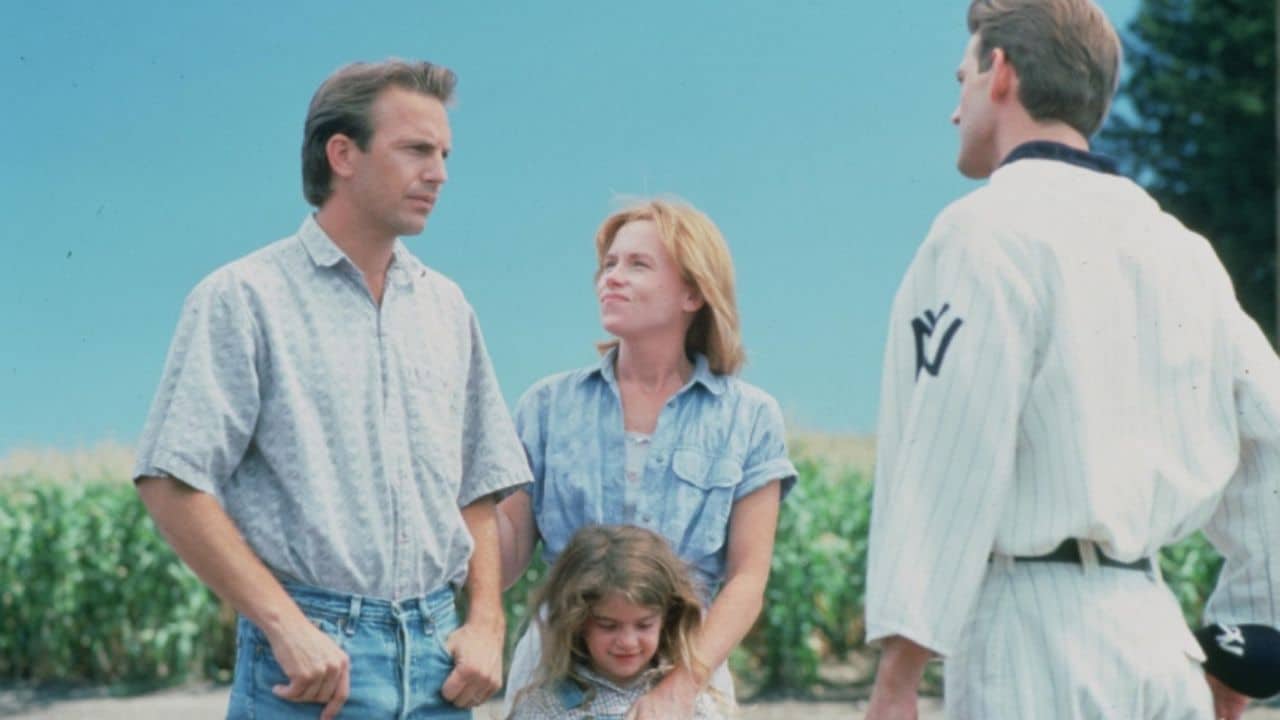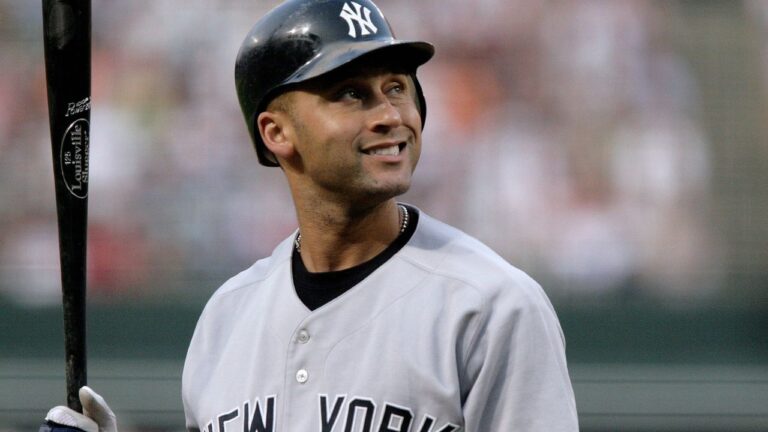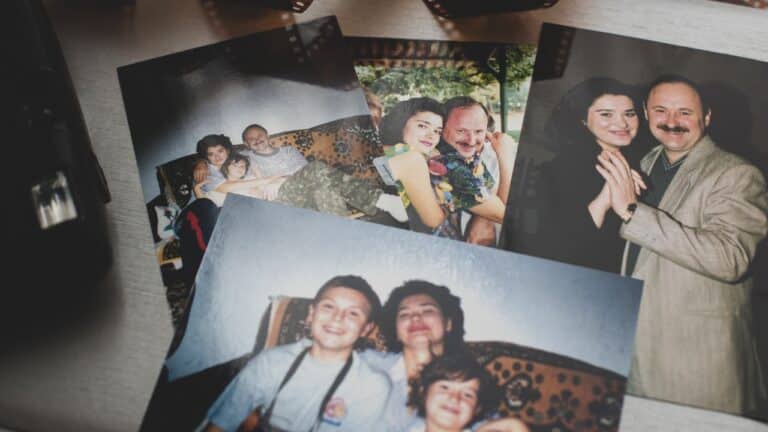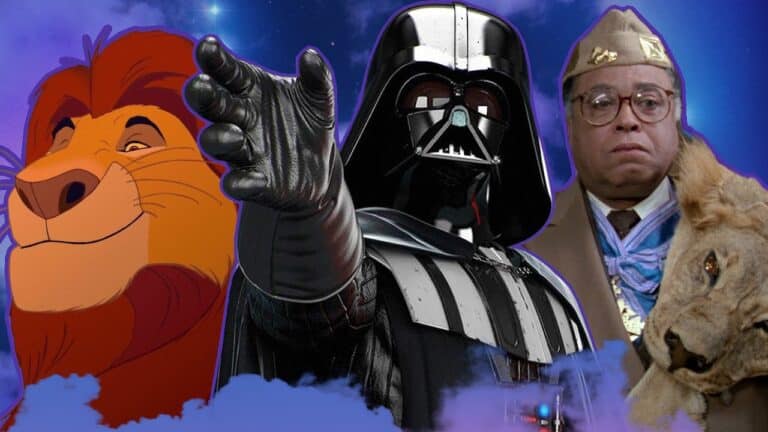15 Beloved Movies That Scream “Boomer”

Baby boomers are those born between the years of 1946 and 1964…and, gosh, do they love movies. These post-WWII children grew up in the tumultuous 1960s and witnessed everything from JFK’s assassination to the Moon landing to the Vietnam War and the Civil Rights movement.
No matter in which decade the following movies were made, they all cater to boomers. Maybe they star boomer actors or are just set in a time period that boomers remember fondly, especially the late ’50s and early ’60s. Whatever the reason, these 15 movies scream “boomer bait” louder than any other. Whether or not other generations can relate to the stories in movies such as The Big Chill and Working Girl remains a subject of debate.
Just like baby boomers themselves, some of these movie favorites have aged better than others.
The Big Chill

The Big Chill represents the big moment for baby boomers in cinema. Released in 1983, this Lawrence Kasdan-directed comedy-drama follows a group of baby boomers who all graduated from the University of Michigan and reunite 15 years later after one of their friends takes his own life. The Oscar-nominated movie stars a host of Boomer icons, including Tom Berenger, Glenn Close, Jeff Goldblum, William Hurt, Kevin Kline, Mary Kay Place, Meg Tilly, and JoBeth Williams.
As if the cast alone didn’t bait boomers to the theater, the soundtrack featuring songs by Creedence Clearwater Revival, Aretha Franklin, Marvin Gaye, the Temptations, the Rolling Stones, and Three Dog Night was music to the ears of nostalgic boomers indifferent to this new network called MTV that catered to Generation X and defined ’80s pop culture.
American Graffiti

George Lucas directed this 1973 coming-of-age movie set in 1962 California during the early days of rock and roll when cruising in cars was a thing.
The Oscar-nominated American Graffiti reignited boomer interest in the “good ol’ days” after just living through the turbulent 1960s and Vietnam War. The movie inspired the popular sitcoms Happy Days and Laverne & Shirley, which also idealize early-’60s America and star American Graffiti actors Howard and Williams.
The Graduate

Mike Nichols’ 1967 romantic comedy-drama The Graduate tells a story about a college graduate who gets seduced by a more mature, married woman only to fall for her daughter.
This cinematic exploration of 1960s youth tapped into the whole “free love” vibe of the era. The Grammy-winning soundtrack includes five songs by boomer favorites Simon & Garfunkel, including the hit “Mrs. Robinson.”
Easy Rider

Dennis Hopper’s 1969 road drama Easy Rider stars Hopper and Peter Fonda as two bikers traveling around America carrying the proceeds from a drug deal. The landmark counterculture film ushered in the so-called New Hollywood era of grittier, more realistic films made with lower budgets.
For baby boomers who identified with the hippie and counterculture movements of the late 1960s, Easy Rider perfectly captures the generation’s rebellious spirit. The Oscar-nominated movie also introduced Jack Nicholson in a supporting role as an up-and-coming star to watch.
Forrest Gump

Robert Zemeckis’ Forrest Gump stars Tom Hanks as the titular character — a simple Alabama man through whose eyes we view various important historical events during the 20th century. The blockbuster hit won six Academy Awards, including Best Picture, Best Actor, and Best Director.
This overly sentimental and simplistic view of “the good old days” in American life elicits more jeers than cheers when viewed 30 years later. Inserting the Gump character beside President Nixon in supposed news footage makes the movie feel weird and unbelievable, not to mention unrelatable for today’s younger generations.
Life may be “like a box of chocolates” for Forrest Gump, but this manipulative movie will only appeal to boomers with a selective memory of that time period.
Field of Dreams

1989’s Field of Dreams stars Kevin Costner as a man who transforms his cornfield into a baseball field that attracts the ghosts of baseball legends.
Anyone wanting to see a boomer male cry, play Field of Dreams. The sentimental movie starring boomer icon Costner tugs at the heartstrings of those with fond memories of going to baseball games with their fathers.
Back to the Future

The 1985 sci-fi classic Back to the Future stars Michael J. Fox as a teenager who — as the passenger in a time-traveling DeLorean — accidentally travels back to 1955 and disrupts the initial meeting between his parents, threatening his own existence in the present. The blockbuster starring Christopher Lloyd, Lea Thompson, and Crispin Glover spawned two sequels.
Back to the Future not only appealed to 1980s youth, but also their boomer parents who got to travel back in time along with the movie to 1955. The soundtrack also offered a mix between modern tunes (Huey Lewis and the News’ “The Power of Love”) and vintage hits written by legendary artists such as Etta James and Chuck Berry.
Dead Poets Society

This 1989 coming-of-age drama directed by Peter Weir stars Robin Williams as poetry-pushing English teacher who inspires students at a 1959 boarding school. Stars-to-be Robert Sean Leonard, Ethan Hawke, and Josh Charles play some of the students.
A late-1950s prep school setting proved irresistible to nostalgic baby boomers in 1989. The Oscar-winning Dead Poets Society delighted critics and audiences, earning $235.9 million worldwide against a budget of only $16.4 million.
When Harry Met Sally…

Rob Reiner’s romantic comedy-drama When Harry Met Sally… stars Meg Ryan and Billy Crystal as platonic friends who become romantic, threatening their close friendship. The movie also stars Carrie Fisher in a memorable supporting role.
The movie’s tagline sums it all up: “Can two friends sleep together and still love each other in the morning?” This must have been a hot-button topic for thirtysomething boomers circa 1989 since When Harry Met Sally… made over $92 million worldwide.
Maybe it was Ryan’s infamous climax-faking scene in a restaurant? Whatever the reason, in our modern age of polyamory, gender nonconformity, and full-spectrum sexuality, When Harry Met Sally… almost seems to take place on another planet.
Ordinary People

Robert Redford’s Ordinary People follows a collapsing family dealing with the accidental death of one son and the other son’s attempt to take his own life. The movie stars Donald Sutherland, Mary Tyler Moore, Judd Hirsch, and Timothy Hutton.
Ordinary People won four Oscars: Best Picture, Best Director, Best Adapted Screenplay, and Best Supporting Actor for Hutton. The New York Times summed up Ordinary People as a “moving, intelligent, and funny film about disasters that are commonplace to everyone except the people who experience them.” This 1980 film appealed to boomers starting families during the Reagan era.
Stand by Me

Director Rob Reiner strikes again! His 1986 coming-of-age drama Stand by Me, based on Stephen King’s book of the same name, follows four boys (Wil Wheaton, River Phoenix, Corey Feldman, and Jerry O’Connell) who discover the body of a missing boy in 1959.
The Oscar-nominated Stand by Me hits that sweet spot time period (late 1950s to early 1960s) that is like catnip to baby boomers. Critics have called the film “timeless” and a “wise, nostalgic movie.” The Stand by Me soundtrack features songs popular during the era in which it is set. The titular song, 1961’s “Stand by Me” by Ben E. King, reentered the Billboard Hot 100 in 1986 and became a top-10 hit for the second time in its history.
Steel Magnolias

This 1989 comedy-drama based on the play Steel Magnolias stars Sally Field, Dolly Parton, Shirley MacLaine, Daryl Hannah, Olympia Dukakis, and Julia Roberts as women in a tight-knit Southern community who come together following the death of one of their own.
Roberts received a Best Supporting Actress Oscar nomination for her performance in this box-office hit that earned $96.8 million worldwide. The presence of boomer icons such as Field, Parton, and MacLaine helped sell tickets to that target demo.
Working Girl

The 1988 romantic comedy-drama Working Girl stars Melanie Griffith as a Staten Island secretary who takes over for her boss (Sigourney Weaver) after the latter is injured skiing. Harrison Ford stars as the man caught between two businesswomen fighting for power and recognition.
One of Griffith’s famous lines from Working Girl is: “I have a head for business and a bod for sin. Is there anything wrong with that?” Today’s answer to that is “no,” but it also seems like a dated concern from a bygone era. During the money-obsessed Reagan era, the Oscar-nominated Working Girl really connected with boomers trying to get ahead in business.
Tootsie

In the 1982 comedy Tootsie, Dustin Hoffman plays problematic New York actor Michael Dorsey who takes the role of a female character on a soap opera with the cast believing he is a biological woman.
Jessica Lange won a Best Supporting Actress Oscar for Tootsie, which made a whopping $241 million worldwide. Roger Ebert wrote, “Tootsie is the kind of Movie with a capital M that they used to make in the 1940s, when they weren’t afraid to mix up absurdity with seriousness, social comment with farce, and a little heartfelt tenderness right in there with the laughs.”
9 to 5

This 1980 comedy stars Jane Fonda, Lily Tomlin, and Dolly Parton as three coworkers who fantasize about giving their egotistical and sexist boss (Dabney Coleman) his just dessert. The hit movie spawned a TV series and a stage musical.
Although the concept of gender roles in the workplace seems dated today when the definition of “gender” itself is open to interpretation, it was very much a hot topic in the early 1980s. Parton — already beloved by boomers for her country music — became a household name after this movie featuring her massive Oscar-nominated hit “9 to 5.” The American Film Institute includes 9 to 5 on its “100 Funniest Movies” list.





